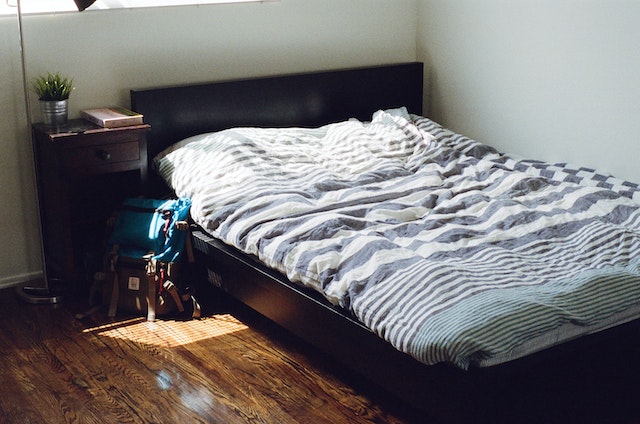The day was long, and you likely feel physically and mentally drained. Your mind can’t help but race with everything you still need to complete throughout the next few days and weeks.
But are you noticing that your anxiety seems to ramp up as nighttime approaches? This is an unfortunate reality for many people, causing them to experience what is known as sleep anxiety. Let’s dive into this.
What Is Sleep Anxiety?
Sleep anxiety occurs when someone has fears or worries revolving around sleep. Other mental health disorders can accompany sleep anxiety, so it isn’t a one-size-fits-all situation.
Unfortunately, many of these situations that cause sleep anxiety often fuel one another. For example, if someone has an anxiety disorder, such as generalized anxiety disorder (GAD), they feel extremely anxious before bed. This could be caused by the anxiety disorder itself, or it could be due to the fear of not getting enough sleep for the next day. As you can imagine, this creates a vicious cycle in a person’s mind.
Sleep anxiety can impact children, teens, adults, and older people. Both men and women are equally susceptible to developing sleeping anxiety.
Sleep anxiety is more likely to develop if:
- Someone has insomnia, which is the inability to fall asleep
- Sleep apnea
- Narcolepsy
- Restless legs syndrome (RLS)
- Sleepwalking
Some of the most common mental health disorders that can cause someone to develop sleep anxiety are:
- Anxiety disorders (GAD, social anxiety, or OCD, to name the most common ones)
- Bipolar disorder
- Depression
- Panic disorder
- PTSD
What Causes Sleep Anxiety?
In moderation, anxiety is helpful. It was developed in our ancient ancestors’ bodies to keep them safe during danger, known as the fight-or-flight response. It was incredibly useful back then when every day was filled with life-or-death situations. Now, though? Well, we don’t often experience highly dangerous situations, but our bodies have held on to this response and seem to want to apply it to any situation they can.
Experiencing high levels of stress and fear, like in chronic anxiety, alters the brain’s chemistry and balance. It causes almost every area of our lives to be thrown out of whack. When this happens, it impacts the body and mind’s natural rhythm to falling asleep at night.
Sleep Anxiety Symptoms
It might be surprising to hear, but being unable to sleep at night is not the only system of sleep anxiety. Someone may also experience:
- Restlessness
- Nervousness before bed
- Racing heart before bed or at night
- Rapid breathing
How To Overcome Sleep Anxiety
Regardless of what is causing sleep anxiety, it can be challenging to deal with. The good news, however, is that it can definitely be overcome. In addition to treating the underlying issue of what is causing sleep anxiety (such as an anxiety disorder or PTSD), someone can try to implement several lifestyle changes on their own.
Set a Bedtime Routine
Try to keep your bedtime routine as consistent as possible. What that looks like for each individual person will vary based on their life. But, in general, trying to avoid TV or scrolling through your phone at night is a great start. Try to start a bedtime routine of ensuring you are in bed by a certain time each night.
Avoid Sugar & Caffeine Late At Night
It can be tempting to snack on sweets at night or have a can of soda to unwind, but both of those things not only increase feelings of anxiety but can prolong the actual sleeping part itself. Instead, stick with beverages such as water, herbal tea, and low-carb healthier snacks.
Sleep anxiety doesn’t come on out of nowhere, so it’s highly likely that something is triggering it. Don’t hesitate to reach out to learn more about anxiety treatment and how it can help you.
